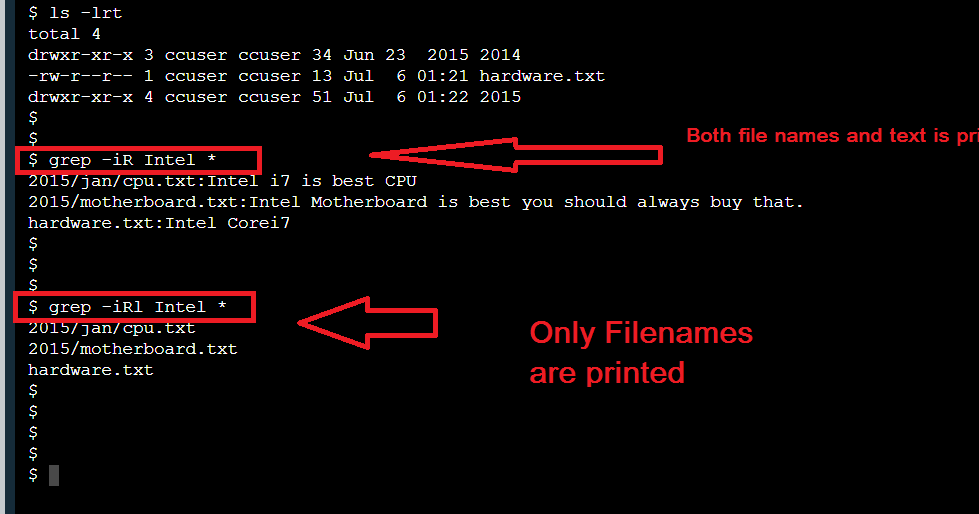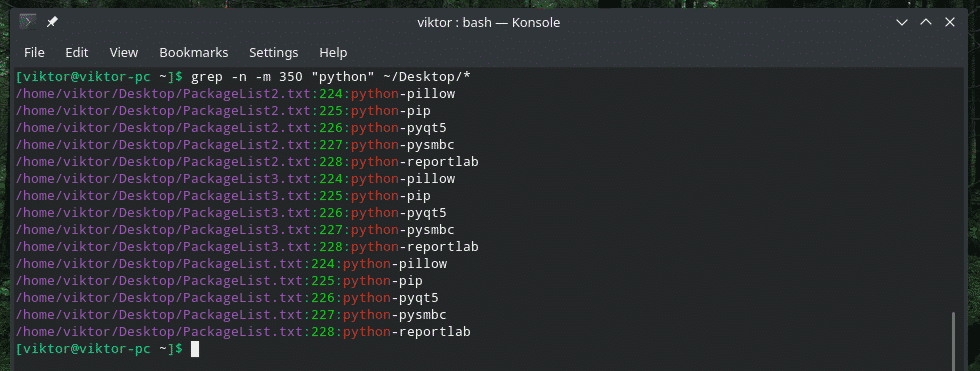
- #Find in files grep recursive how to
- #Find in files grep recursive pro
- #Find in files grep recursive free
So, what's the difference grep -r and grep -R? Only one, actually. There is also a -R option for recursive search and it works almost the same as the -r option. Here's the result: Recursive search with -r option of grep command Here's the recursive search I performed in the previous example to do a grep search in the current folder: grep -r simple. With this option, grep will look into all the files in the current (or specified) directory and it will also look into all the files of all the subdirectories. Grep provides a -r option for the recursive search. Grep recursive search in all subdirectories of a directory Now that you know that, let's see how you can perform a recursive search with grep so that it also looks into the files in the subdirectories. If you are not in the same directory where you want to perform, you can specify the directory path and end it with /* grep search_term directory_path/*īasically, you are using the wild card to expand on all the elements (files and directories) of the given directory. Search in all files of a directory with grep Since you cannot directly grep search on a directory, it will show "XYZ is a directory" error along with search results.

This will search in all the files in the current directories, but it won't enter the subdirectories. The wild card actually substitutes with the name of all the files and directories in the current directory. To search for the word 'simple' in all the files of the current directories, just use wild card (*). Except empty.txt, all files contain the term 'simple' on which I'll perform the grep search. Here's the directory structure I am going to use in this example. Let me show you all this in details with proper examples so that it is easier for you to understand. You may also specify the directory path if you are not in the directory where you want to perform the search: grep -r search_term directory_path You can make grep search in all the files and all the subdirectories of the current directory using the -r recursive search option: grep -r search_term. It only searches in all the files in the current directory. If you want to search all the files in a directory with grep, use it like this: grep search_term * Usually, you run grep on a single file like this: grep search_term filename They called me.I told them if the.Grep is an excellent tool when you have to search on the content of a file. except, instead of an attachment, there was a link to a document sharing service**. The address checked out, everything about the email looked fine. Turns out some HP models offer a wealth of options for stamping. I have never really played around with this and I am not sure how long HP has had this embedded but I have recently had someone asking about numbering pages when they are scanning old files.
#Find in files grep recursive pro
#Find in files grep recursive how to
> How to recursively search for a filename that contains a > help them, could you at least not hurt them?" - H.H. > mailto: "Our greatest duty in this life is to help others. > Esenboga Havalimani Yolu 22.km Akyurt 06750 Ankara No: 242246 Registered Office: Serco House,16 Bartley Wood Business Park, Bartley Way, Hook, Hampshire RG27 9UY United Kingdom.įind / -type f -name "*EXTSHM*" -exec ls -l
#Find in files grep recursive free
This email is not guaranteed to be free from viruses and does not bind Serco in any contract or obligation. If you are not a named addressee, do not use, retain or disclose such information.

This e-mail and any attachments are for the intended addressee(s) only and may contain confidential and/or privileged material. This can be implemented using ls -R, please help me in this regard.

I want to search a file that contains a particular pattern.Įx. Subject: How to recursively search for aįilename that contains a particular pattern.


 0 kommentar(er)
0 kommentar(er)
